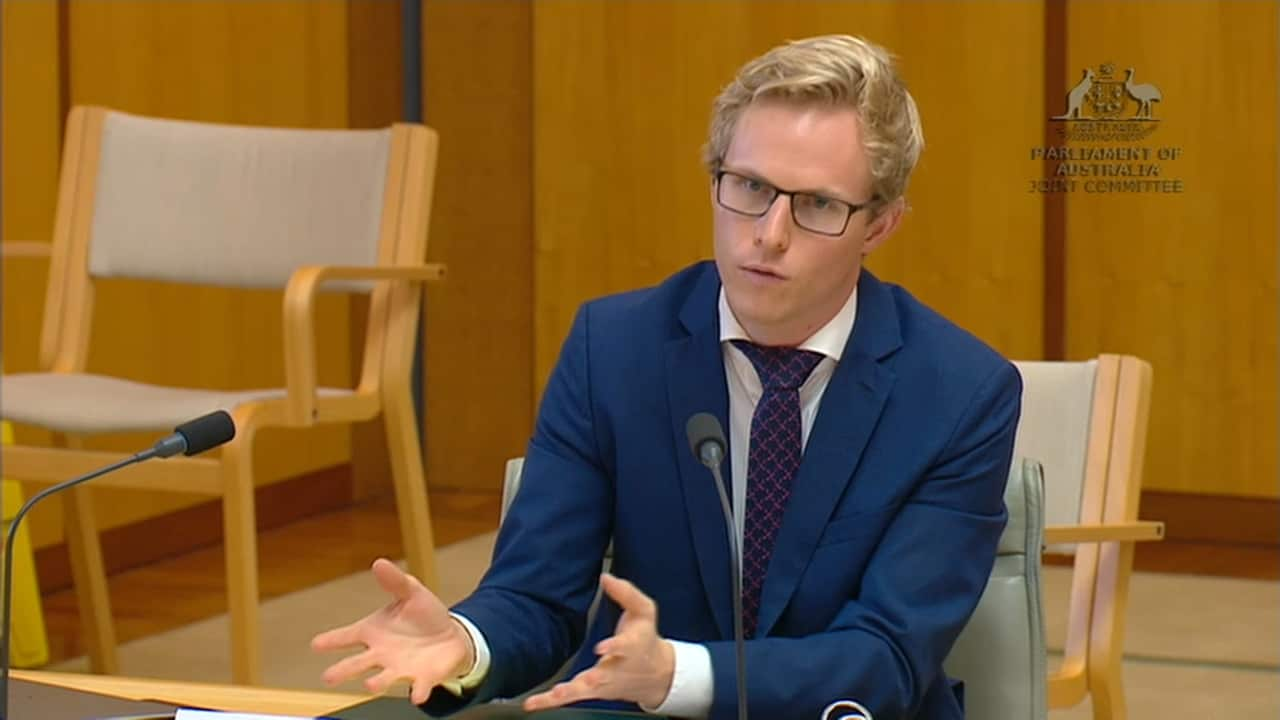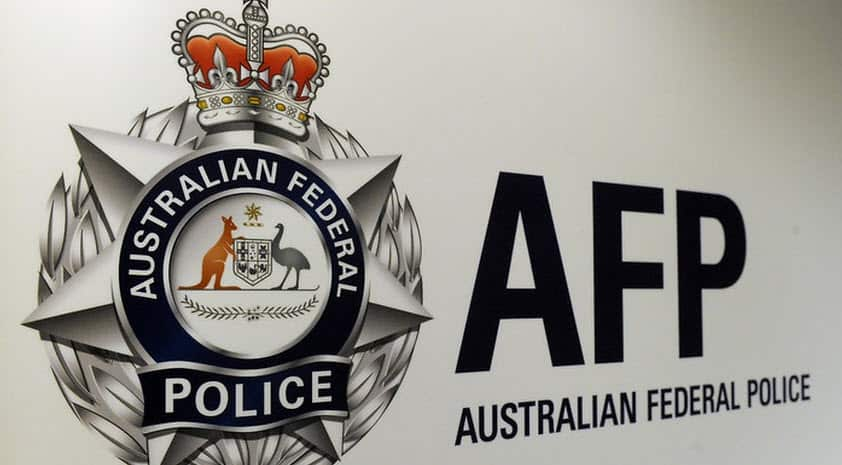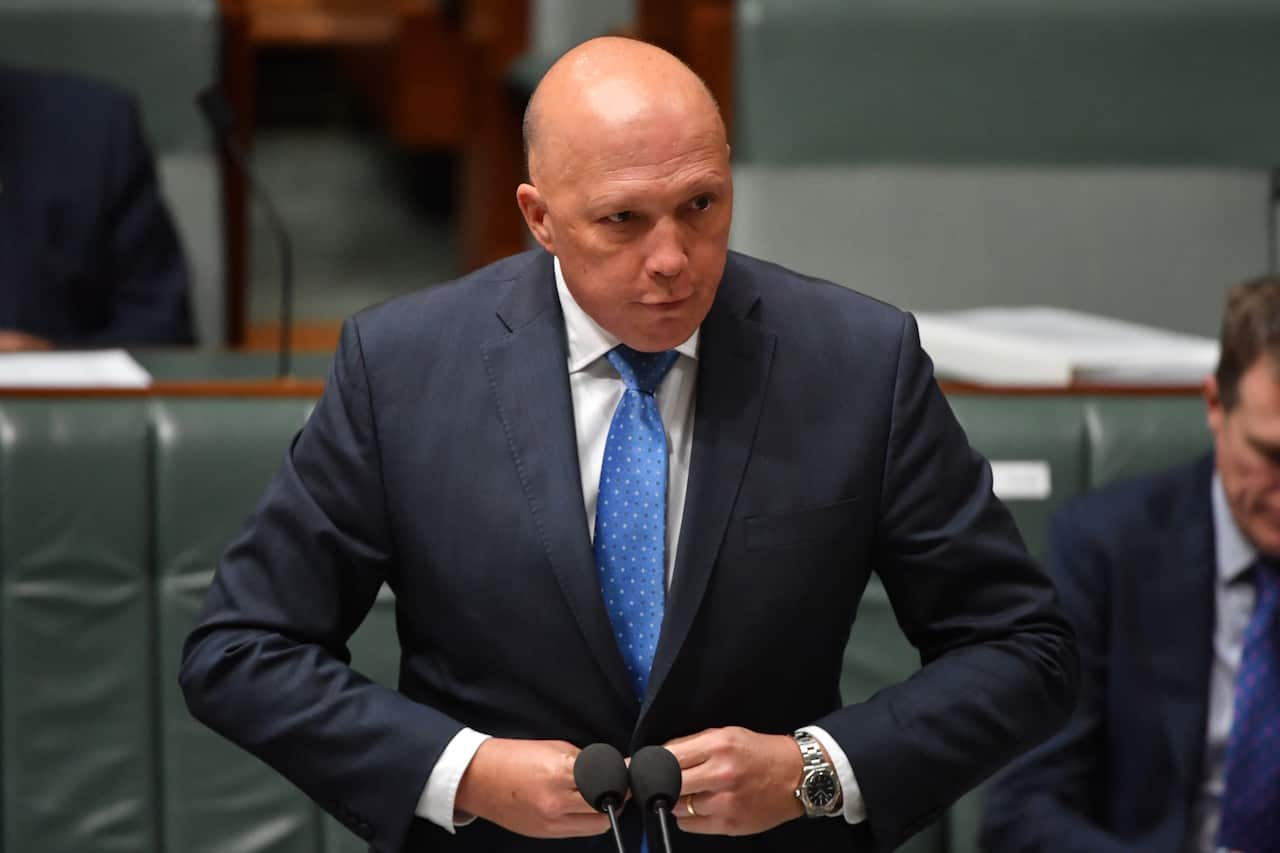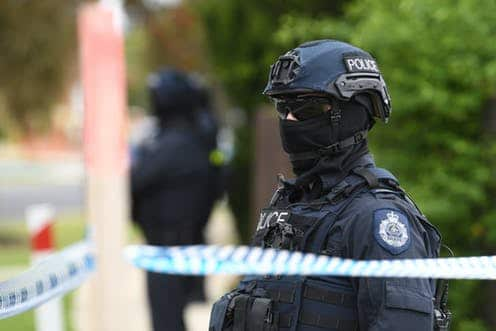Human rights activists have pushed for a new online surveillance bill to be culled, saying it's a "draconian" and "extreme" infringement on people's right to privacy.
Bill Rowlings, CEO of rights group Civil Liberties Australia, has called for the proposed Surveillance Legislation Amendment Identify and Disrupt Bill 2020 to be abandoned.
"These are particularly draconian and particularly bad, so my message would be to throw these out, start again and get some proper consultation from the beginning," he told SBS News.
"They are draconian, right wing, extreme, they are removing civil liberties and human rights from Australians." Kieran Pender from the Human Rights Law Centre also expressed concern that the new powers would undermine and threaten civil rights and basic freedoms.
Kieran Pender from the Human Rights Law Centre also expressed concern that the new powers would undermine and threaten civil rights and basic freedoms.

Kieran Pender from the Human Rights Law centre presents a statement to a parliamentary committee. Source: Screenshot SBS
"Any surveillance law intrudes on the rights of everyday Australians," he said.
"Any surveillance need to be strictly necessary and really tightly proportionate to the legitimate purpose they are trying to address."
A parliamentary inquiry is examining the Federal Government's proposal to allow law enforcement agencies new powers for dealing with online crime.
What is the proposed legislation?
The proposed legislation is called the Surveillance Legislation Amendment Identify and Disrupt Bill 2020.
It aims to disrupt and prevent online terrorism and child exploitation.
The Bill would give the Australian Federal Police and the Australian Criminal Intelligence Commission three new online warrants to deal with crime. Cath Patterson, Deputy Secretary Strategy and Law Enforcement from the Department of Home Affairs, told a parliamentary inquiry the current laws fighting online crime need to be updated.
Cath Patterson, Deputy Secretary Strategy and Law Enforcement from the Department of Home Affairs, told a parliamentary inquiry the current laws fighting online crime need to be updated.

Australian Federal Police. Source: AAP
"Anonymising technologies are being used to allow criminals to evade law enforcement and criminal intelligence efforts, so we simply cannot allow serious crimes to occur online any more than we would in the physical world," she said.
"Investigations into online criminality must adapt if our agencies are to continue to do the job that we expect of them - keeping Australians safe."
When could this proposal become law?
The Surveillance Legislation Amendment Identify and Disrupt Bill 2020 was introduced to Parliament in December last year by Federal Home Affairs Minister Peter Dutton.
It is currently before Parliament, but is being assessed by a bi-partisan Parliamentary Intelligence and Security Committee.
The Committee is in the process of gathering evidence from groups and agencies, and will issue a report in April or May.
Mr Pender hopes the report recommends the legislation be re-drafted.
"Any surveillance law should be worded so narrowly so that it can only be used in accordance with its necessary purpose with appropriate safeguards," he said.
"These laws are so extraordinary, so intrusive, so unusual, the Human Rights Law Centre has called on the committee to recommend that it be comprehensively redrafted, and we are hopeful that this bill will be amended."
What elements of the Bill are attracting particular scrutiny?
The bill would give police access to three new warrants which would grant investigators extra powers.
- Data disruption warrant:
The legislation's explanatory memorandum says it is intended to be used to prevent "continuation of criminal activity by participants, and be the safest and most expedient option where those participants are in unknown locations or acting under anonymous or false identities."
- Network activity warrant:
This would allow authorities to collect intelligence from devices used, or likely to be used, by those subject to the warrant.
- Account takeover warrant:
This would allow agencies to take full control of an online bank account for the purposes of locking a person out of that account.
Australian Federal Police Commissioner Reece Kershaw told the Committee authorities need operational flexibility.
"The new powers proposed in this bill are a key step forward in enabling law enforcement to tackle the fundamental shift in how serious criminality is facilitated online," Mr Kershaw said.
"We are currently seeing a continual increase in the volume of harmful criminal activity being committed online, some of it exacerbated by the pandemic - Report Cyber receives a complaint every eight minutes. We do need them if we want to get better at addressing crime." Any crime punishable by a sentence of three years or more could be targeted with the new surveillance powers.
Any crime punishable by a sentence of three years or more could be targeted with the new surveillance powers.

Australian Federal Police AFP Commissioner Reece Kershaw. Source: AAP
This is the main issue raised by the Human Rights Law centre, and the Law Council of Australia.
Law Council President Dr Jacoba Brasch says the bill would substantially expand Federal Police powers, which merits detailed scrutiny.
"The new powers depart sharply from the traditional focus of investigative powers on the collection of admissible evidence of specific offences, and they have the potential to cause significant loss or damage to large numbers of non-suspects who are lawfully using computer networks or the systems being targeted." In December last year, Mr Dutton said the powers are intended only to be used in cases of the most severe wrongdoing.
In December last year, Mr Dutton said the powers are intended only to be used in cases of the most severe wrongdoing.

Minister for Home Affairs Peter Dutton during Question Time in the House of Representatives at Parliament House in Canberra, Thursday, December 3, 2020. Source: AAP
Mr Pender says that threshold isn't reflected in this bill.
Andrew Warnes from the Department of Home Affairs says the proposed warrants are more limited than critics are saying.
"They are a very, very narrow warrant. I am not sure that has fully come out in the hearings today just how narrow they actually are," he told the Committee. Mr Rowlings and Mr Pender are both concerned about the gradual encroachment of surveillance laws in Australia, which began shortly after the 9/11 attack in 2001.
Mr Rowlings and Mr Pender are both concerned about the gradual encroachment of surveillance laws in Australia, which began shortly after the 9/11 attack in 2001.

Australian Federal Police officer. Source: AAP
"Over time, we have had 20 years of this now, since 2001, when the aircraft crashed into the towers in New York, we have 20 years of this type of legislation," Mr Rowlings said.
"What we need now is a thorough reassessment because these laws are awful, cumulatively awful, a hundred of them over the past 20 years, and they need to be fixed."










